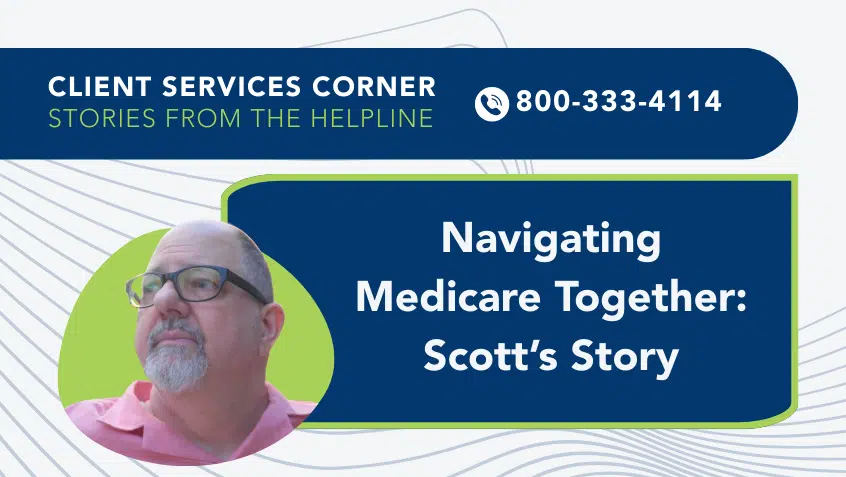Join Us Live for a Discussion on Medicare, Democracy, and the Future of Health Care
Why are Medicare private health plan notices important?

[x_blockquote cite=”Walter (Kettering, OH)” type=”left”]Dear Marci,
Most months my insurance company sends me Medicare notices in the mail. I have difficulty keeping up with them, and last week I told my neighbor that I usually ignore everything. She told me I should read each notice carefully and take appropriate action. So what have I been missing?
[/x_blockquote]
Dear Walter,
Your neighbor is correct—you should be carefully reading each of your insurer’s notices as most contain important information on your Medicare private health plan. Throughout the year, there are notices that plans must give you if they make changes during the year. These notices are designed to inform you about important changes to your health coverage that may affect what doctors you want to see or whether or not you want to switch plans.
Most beneficiaries can only change their plan once a year during the Fall Open Enrollment Period, but doctors, hospitals, and other providers can leave your plan’s network at anytime. This is important because you may pay more if you see doctors and use medical facilities that are outside your plan’s network (here is a comparison chart showing how different plan types treat in-network and out-of-network care). When a provider is leaving a plan’s network, the plan must try to send all the plan members who use that provider a written notice at least 30 days before the provider leaves the network.
If your Medicare prescription drug plan makes changes to its formulary during the year, you have certain notice rights depending on why the plan made the change. If a medication is taken off your plan’s formulary because it was declared unsafe by the Food and Drug Administration (FDA), your plan must notify anyone who might be affected. Plans must also send notices informing you of maintenance changes, including covering a generic drug instead of a brand-name drug, adding quantity limits for drugs that the FDA adds warnings to, and making formulary changes based on clinical best practices and safety concerns. If your drug plan is making maintenance changes, they must give you 60 days notice or provide you with a 60-day transition fill. If they make any other changes to their formulary, your plan must also send you a notification in the mail stating that a drug you are already taking is no longer on their formulary but it will be covered for you for the rest of the year.
It’s important to read these notices, so you can look into getting your Medicare drug plan to cover your drugs when you find your drugs are not covered, are covered with restrictions, or if you’re subject to a drug transition policy because you need to change your prescription to a drug covered by the plan or switch plans. Note that you can work with your health care provider to ask your plan for a coverage exception if your provider feels that only your original drug will work for you. Your doctor should provide medical support in writing, stating that the drugs covered by your plan would not be as effective as the prescribed drug or may be harmful to you.
If you have the same Medicare Advantage Plan or Part D Prescription Drug plan in 2017 as you did in 2016, your plan should have sent you an Annual Notice of Change (ANOC) or Evidence of Coverage (EOC) notice explaining any changes for the coming year. Review this notice to understand your plan’s costs, covered services, and rules. Contact your plan if you did not receive these documents in the fall or if you want another copy. Later on, if you choose a new plan, review the costs associated with that plan for 2017.
Walter, the last thing you should do is ignore a notice sent to you by your Medicare private health plan. If you need help understanding these notices, your rights as a beneficiary, and what action you should take, there is free information and assistance that you can access.
– Marci
Show Comments
We welcome thoughtful, respectful discussion on our website. To maintain a safe and constructive environment, comments that include profanity or violent, threatening language will be hidden. We may ban commentors who repeatedly cross these guidelines.
Help Us Protect & Strengthen Medicare
Donate today and make a lasting impact
More than 67 million people rely on Medicare—but many still face barriers to the care they need. With your support, we provide free, unbiased help to people navigating Medicare and work across the country with federal and state advocates to protect Medicare’s future and address the needs of those it serves.
The Latest
Most Read
Add Medicare to Your Inbox
Sign up to receive Medicare news, policy developments, and other useful updates from the Medicare Rights.
View this profile on InstagramMedicare Rights Center (@medicarerights) • Instagram photos and videos









